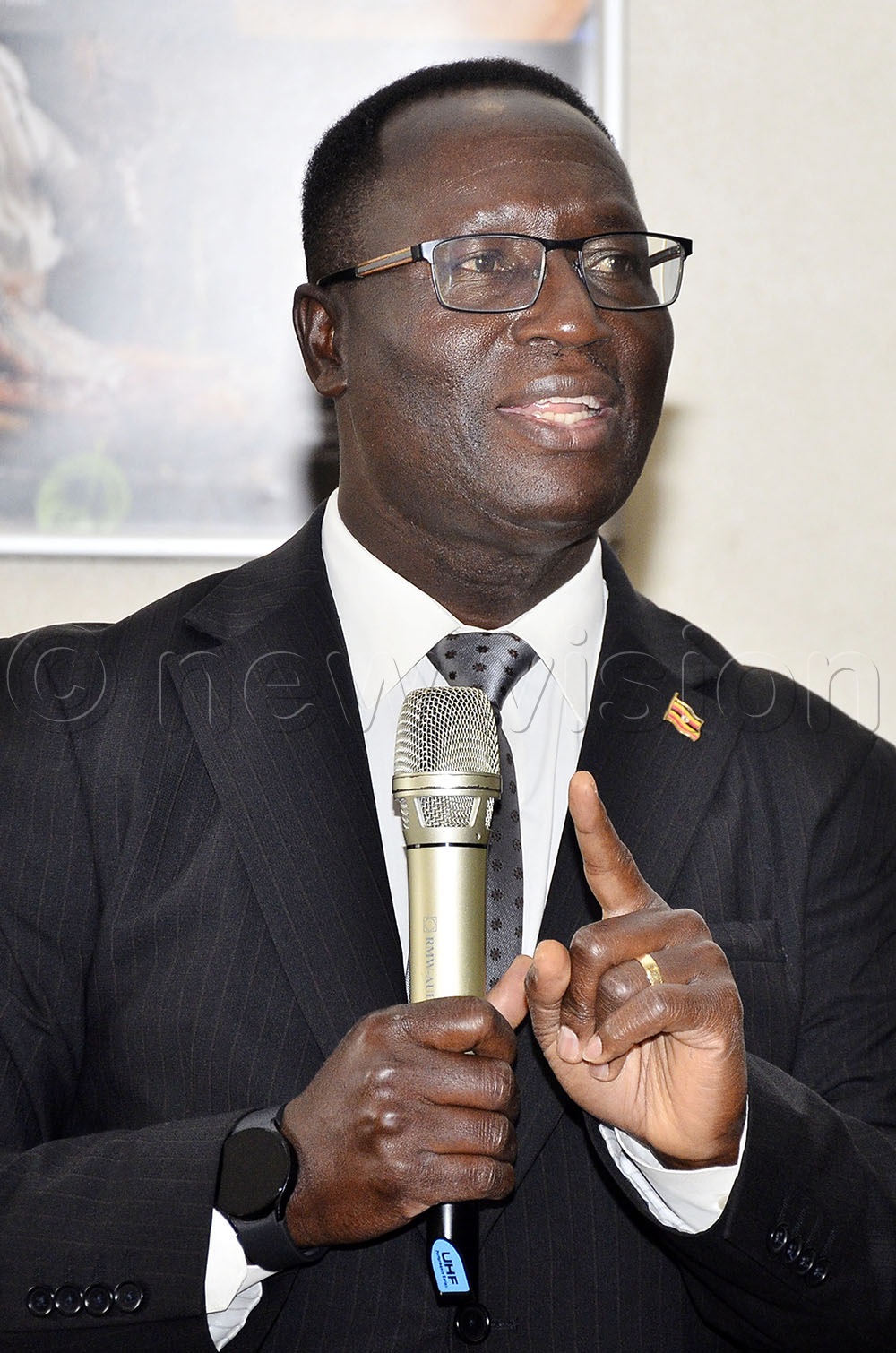Over 100,000 Ugandan migrant workers off the radar
To close this gap, the Government of Uganda has launched a set of digital tools to strengthen its ability to track, support, and protect migrant workers, especially those in vulnerable conditions.
The technical Advisor of GTZ in Uganda, Nehl Hirani (left) looks on as the Permanent Secretary of the Ministry of Gender Labour and Community Development, Aggrey Kibenge (second left) signs to launch the labour migration digital tools at Protea Hotel Kampala on 10 July 2025. (Photo by Ronnie Kijjambu)
_________________
Only 300,000 Ugandan migrant workers are captured in the official government systems, while more than 100,000 remain off the radar, raising concerns over their safety and legal status abroad.
To close this gap, the Government of Uganda has launched a set of digital tools to strengthen its ability to track, support, and protect migrant workers, especially those in vulnerable conditions.
Aggrey David Kibenge, the Permanent Secretary at the Ministry of Gender, Labour and Social Development, said that Uganda has an estimated 400,000 citizens working overseas, but only about three-quarters of them are currently registered in the official External Employment Management Information System (EEMIS).
The Permanent Secretary of the ministry of Gender Labour and Community Development, Aggrey Kibenge speaks during the launch of the labour migration digital tools at Protea Hotel Kampala on 10 July 2025. (Photo by Ronnie Kijjambu)
“These unregistered migrants are difficult to trace and protect. If they face abuse or die abroad, we may not even know who they are or how they left,” Kibenge said.
Digital Innovations to Bridge the Gap
On Thursday, July 10, 2025, the government unveiled a trio of digital tools to improve the oversight and welfare of migrant workers. The new tools include a Migrant Complaints Module, the Sauti 116 Helpline App and the Labour Migrant Returnee Database.
These innovations will integrate with EEMIS, enabling the government to track a migrant’s journey from recruitment to return, offer 24/7 support, and maintain a centralised record of returnees.
“These innovations create digital pathways for safer, more accountable labour migration,” Kibenge said during the launch at Protea Hotel in Kololo. “They will help us respond faster to emergencies and enforce accountability for recruitment companies,” he added.
The upgraded system captures critical data such as passport numbers, medical records, and recruiter details. Licensed companies are required to deposit a sh100 million bank guarantee to cater for emergency repatriation or compensation if a migrant cannot travel.
GIZ Partnership Backs Rollout
The digital tools were developed with support from GIZ Uganda, under the EU- and Germany-funded Better Regional Migration Management (BRMM) programme.
“We’ve worked closely with Uganda since 2018 to support safe, regular migration,” said Nehl Hirani, GIZ Technical Advisor. She said, “These tools are a regional milestone and are already operational in Kenya, Ethiopia, and Somalia.”
GIZ also helped to upgrade the Sauti 116 helpline, training its handlers to manage complaints specific to migrant issues.
Industry Stakeholders Applaud Move
Milton Omurwok, Chairperson of the External Labour Association of Uganda (ELAU), welcomed the tools as long overdue.
“We’ve been overwhelmed trying to manually track complaints and trace migrants. This system brings order to the chaos,” he said.
Omurwok urged the government to further link the Immigration Directorate’s systems with EEMIS to enable real-time tracking of everyone entering and exiting the country—a move he believes would boost the fight against human trafficking and illegal recruitment.
Migration as an Asset
Beyond the economic benefits, including over $900 million (about sh3tn) in annual remittances, Kibenge said that migrant workers return with better skills, discipline, and financial habits.
“When migrants return, they come back more skilled, disciplined, and often better educated. It’s an opportunity to reintegrate them as more productive citizens,” he said.
According to Kibenge, foreign countries are reporting more migrant workers than the Ugandan Government has in its systems. For example, he revealed that they found out that there were over 200,000 Ugandans in Saudi Arabia opposed to the 40,000 the government system knows.
Additionally, he said that there are over 100,000 migrant workers in the UAE as opposed to the 60,000 in the government system. Due to these discrepancies, he said digitizing labour migration is no longer optional.
“We must bring every migrant into the system, for their protection and for national development,” Kibenge emphasised.